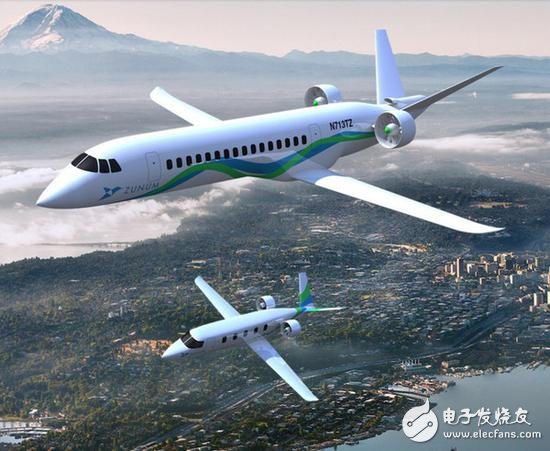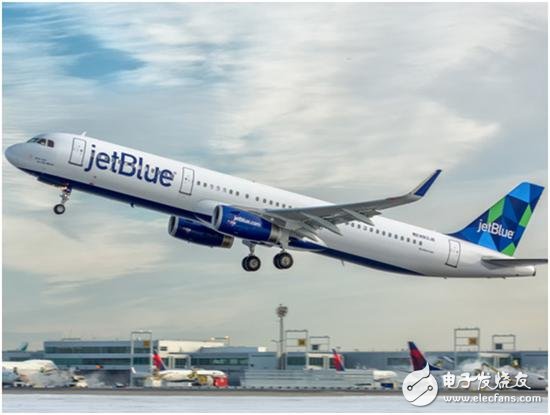Boeing has just invested in a hybrid electric vehicle developer.
According to Reuters, on April 5, local time in Seattle, Boeing said that it has established a venture capital department and invested in Zunm Aero in the Seattle area, a startup that is committed to developing hybrid electric vehicles. It is to reduce the flight cost of regional routes. It is understood that Zunum Aero has also received funding from JetBlue Technology Ventures, a subsidiary of JetBlue (Nasdaq: JBLU).
Boeing did not disclose the amount of the investment. However, Boeing spokesperson Chaz Bickers said the move represents Boeing’s commitment to investing hundreds of millions of dollars a year in innovation and will complement Boeing’s R&D efforts.
According to the US insider news business insider, Zunum Aero proposed to develop a hybrid aircraft that can accommodate 10-50 passengers, designed for short-haul air services, with a maximum range of 1,000 miles. Combined with 1609.3 kilometers). Zuus Aero founder and CEO Ashi Shi? According to Ashish Kumar, the aircraft will be powered by a battery-powered hybrid propulsion system that can be powered by aerospace diesel or turbocharged generators when needed.

â–²Zunum Aero proposed a hybrid aircraft.
Kumar graduated from Cornell University with a Ph.D. in Mechanical and Aerospace Engineering and worked for companies such as Dell, Google, and McKinsey.
Kumar said that the aircraft is expected to fly for the first time in the next 10 years, with a service life of about 20 years. Zunum Aero named the design concept “for the futureâ€, which means that the aircraft will be designed to accommodate new technologies and adapt to future needs. Kumar revealed that the aircraft will initially be propelled by a hybrid system that will reduce emissions by 80% compared to conventional aircraft propulsion systems. Later, with the advancement of battery technology, a large number of aircraft internal combustion engines can be replaced with additional battery packs, and their emissions can be reduced to zero.
In addition, the Zunum Aero Hybrid is expected to reduce aircraft noise by 75%, which is critical for airports that are strictly limited in noise.
According to Business insider, in recent years, many airlines have withdrawn from the small 50-seat regional jet market to support the operation of large aircraft projects with lower unit costs. In response, Zunum Aero said that by reducing the demand for a large amount of jet fuel, its hybrid small passenger aircraft can reduce airline operating costs by 40% to 80%.
Although the future use of the Zunum Aero Hybrid aircraft must replace the battery pack once or twice a year for the aircraft, in Kumar's view, the Zunm Aero Hybrid is the latest jet produced by Airbus and Boeing. Aircraft with lower unit costs.

â–² JetBlue Airlines.
It is reported that the Zunum Aero hybrid aircraft is suitable for small general aviation airports or regional airports, which can save commute time for short-haul passengers. Kumar also said that by using the general aviation airport, the Zunum Aero hybrid aircraft will be 2-4 times faster than highways, high-speed rails or traditional aircraft.
It is worth noting that JetBlue currently operates aircraft supplied by Airbus and Embraer. If Zunum Aero finally launches the above models, JetBlue will have a Boeing branded aircraft in its fleet.
At the juncture of aircraft delivery and net orders, Boeing and Airbus, the world's two major civil aircraft manufacturers, "sounded" the "war" of short-haul flights.
In January 2017, Airbus CEO Tom Enders said that Airbus plans to test a prototype of a self-driving "flying car" by the end of 2017, which is immune to urban traffic jams. "bitter". It is reported that Airbus established the “Urban Air Traffic†department in 2016 to develop air vehicles such as air vehicles for personal transportation and helicopter vehicles.
In 2016, Airbus delivered a total of 688 civil aircraft to 82 customers worldwide. During the same period, Boeing delivered 748 civil aircraft to customers worldwide. In 2016, Airbus received a total of 731 aircraft net orders. During the same period, Boeing received a net order of 668 aircraft.
Dongguan Guancheng Precision Plastic Manufacturing Co., Ltd. , https://www.dpowergo.com